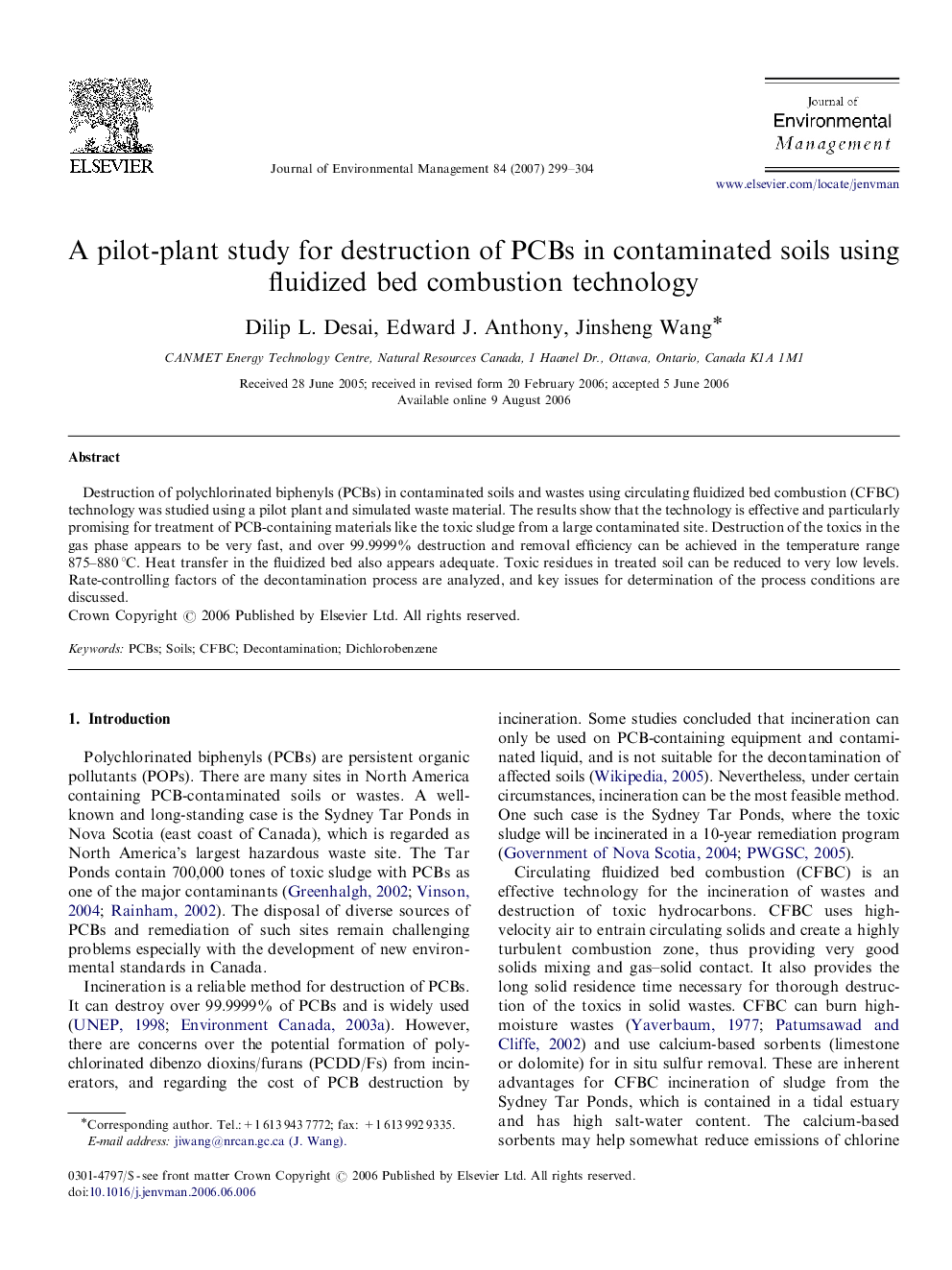| Article ID | Journal | Published Year | Pages | File Type |
|---|---|---|---|---|
| 1057705 | Journal of Environmental Management | 2007 | 6 Pages |
Destruction of polychlorinated biphenyls (PCBs) in contaminated soils and wastes using circulating fluidized bed combustion (CFBC) technology was studied using a pilot plant and simulated waste material. The results show that the technology is effective and particularly promising for treatment of PCB-containing materials like the toxic sludge from a large contaminated site. Destruction of the toxics in the gas phase appears to be very fast, and over 99.9999% destruction and removal efficiency can be achieved in the temperature range 875–880 °C. Heat transfer in the fluidized bed also appears adequate. Toxic residues in treated soil can be reduced to very low levels. Rate-controlling factors of the decontamination process are analyzed, and key issues for determination of the process conditions are discussed.
